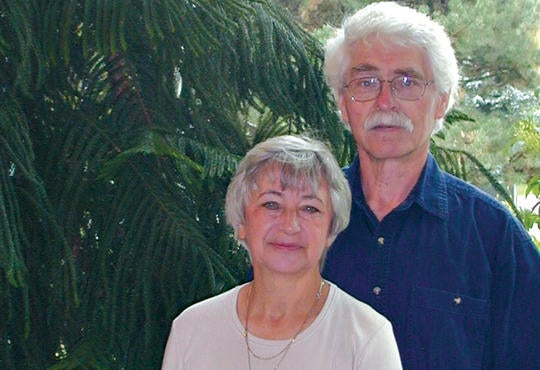Richard Yim can claim many titles: University of Waterloo alumnus, engineer, start-up co-founder, and peace entrepreneur.
Over the past several years, Richard’s company, Demine Robotics, has been a member of several of the support programs that make up Waterloo’s vibrant innovation ecosystem. This includes St. Paul’s GreenHouse, the Velocity Garage, the Conrad Business, Entrepreneurship and Technology Centre, the Accelerator Centre, and, of course, the Epp Peace Incubator in the Kindred Credit Union Centre for Peace Advancement (CPA).
What difference has our Peace Incubator made in Richard’s journey? Put simply, we have challenged him to think and work politically. He has learned how to connect not only with civil society networks focused on landmine issues, and with the clearance agencies contracted to address many of those issues, but with governments in both Canada and Cambodia that are responsible for funding and directing those efforts. And Richard has been a fast learner.
In the Fall of 2016, I took Richard to Ottawa to meet with officials in Global Affairs Canada and Innovation, Science and Economic Development Canada. A few weeks later he had the chance to meet face-to-face with then Minister of Foreign Affairs, Stéphane Dion, urging him to reclaim Canada’s leadership role in ridding the world of the scourge of landmines.
A few months later, Richard was on the cover of CanadExport, the official magazine of the Canadian Trade Commissioner Service.
One year later, the Government of Canada reversed years of declining contributions and pledged $12 million in new funding for landmine clearance efforts.
To be sure, many individuals and organizations have been advocating for this kind of investment, including the Canadian Landmine Foundation and Mines Action Canada, but Richard’s voice has certainly helped.
Although I would argue that all entrepreneurs seeking to make a social impact should be interested in effecting change at a broader political, societal, or systemic level, for peace entrepreneurs such as Richard, exploring this terrain is critical from the outset. More specifically, engaging governments—whether as a potential program partner, to address regulatory challenges, or to change priorities and policies—is often a crucial step in the process of achieving widespread impact.
The CPA is well placed to help the peace start-ups in our incubator think and work politically. Beyond my own past experience engaging the federal government on public policy issues on behalf of Mennonite Central Committee, staff with the CPA’s Core Collaborators have much to offer. This includes Project Ploughshares, which has played a leading role in peace and disarmament efforts in Canada and at the United Nations for more than four decades, and the Tamarack Institute, which has worked for more than fifteen years with leaders in governments, non-profits, and businesses to make positive community change easier and more effective.
Peace entrepreneurs like Richard benefit from the CPA’s Peace Incubator Fund, providing small seed funding for participants in the Frank and Helen Epp Peace Incubator. Thanks to the Bauman family, gifts to this fund are being matched 1:1. Your gift can make a big impact!
Grant Will Increase Youth Engagement With Government
Over the next two years, the Kindred Credit Union Centre for Peace Advancement (CPA) will be partnering with the St. Paul’s University College GreenHouse program to share our expertise with a broader audience.






